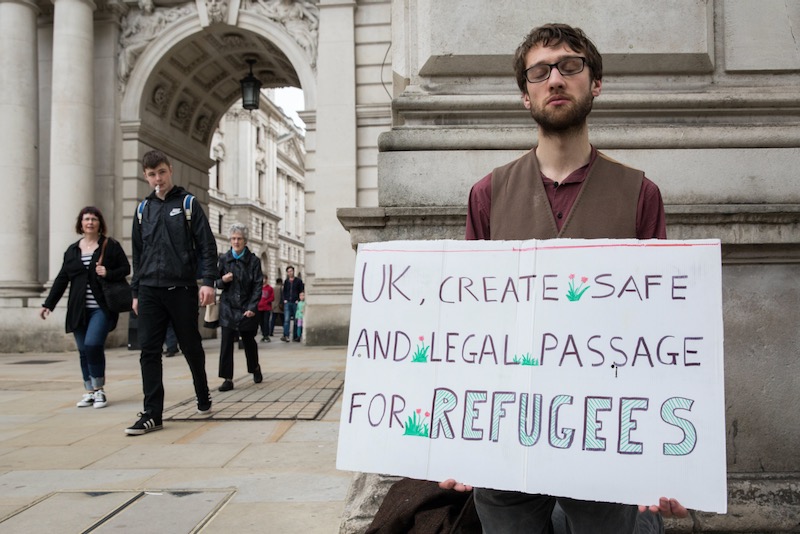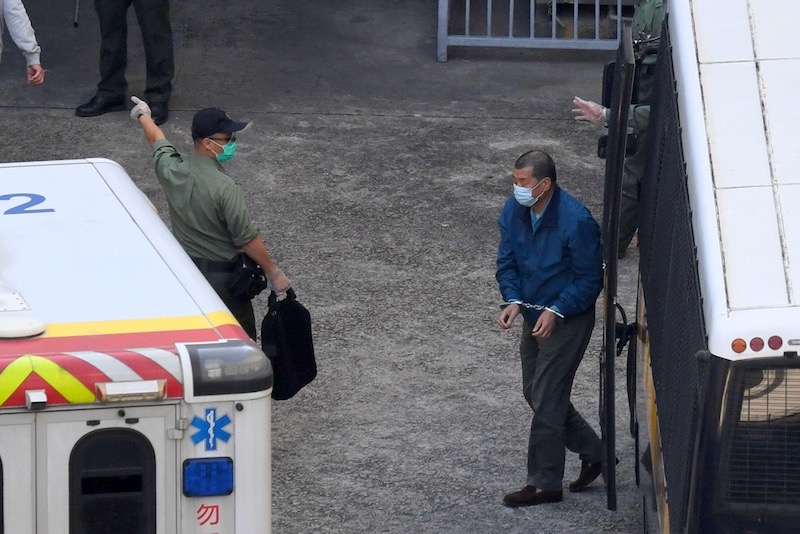July 1 will always be a day engraved in the minds of Hong Kongers – and everyone who loves freedom and believes in the truth. For it is the day that both truth and freedom died in Hong Kong.
On 1 July 1997, the then Prince of Wales – now King Charles III – and the last Governor, Chris Patten – handed Hong Kong over to Chinese sovereignty. They did so on the basis of a promise, enshrined in a treaty, signed by Beijing. That promise was a “high degree of autonomy” for Hong Kong, indeed the protection of Hong Kong’s basic freedoms, the rule of law, human rights and way of life at least for 50 years – until 2047. It was the promise of “one country, two systems”, enshrined in the Sino-British Joint Declaration which had been signed by Margaret Thatcher and Zhao Zhiyang, at the initiative of China’s paramount leader Deng Xiaoping, in 1984, and registered at the United Nations.
Today, 26 years on, those promises are broken, that treaty is shredded and those promised freedoms have been dismantled.
For the first decade after the handover, it is fair to say that the Chinese Communist Party regime in Beijing kept its promises to Hong Kong – at least superficially. Any erosion during those years was more due to pro-Beijing Hong Kong quislings second-guessing the regime and self-censoring. I experienced it for myself, when I lived in Hong Kong for the first five years after the handover, from September 1997 until 2002, working as a journalist – my first job after graduation. I discovered a liberty during those years that was extraordinary. I could write, and publish, articles that today in Hong Kong would not only never be printed but would land me in jail. Towards the end of my five years in Hong Kong I saw some subtle negative influences in the media – which I recount in my new book, The China Nexus – but which at the time I thought were little more than early warning signs.
From the time of the Umbrella Movement in 2014 onwards, the downward spiral began. Those peaceful protests for universal suffrage almost a decade ago were met with disproportionate brutality – the teargas and arrests then were a sign of worse to come. In subsequent years, the abduction of the Causeway Bay booksellers, the disqualification of a handful of elected pro-democracy legislators, the imprisonment of Hong Kong’s first dissidents – student activists Joshua Wong, Nathan Law and Alex Chow – heralded the erosion of Hong Kong’s freedoms.
My own little experience of being denied entry to the city that had once been my home, in October 2017, and then anonymous threatening letters being sent to my home in London, my neighbours and my mother, amounted to another sign that Hong Kong’s way of life was fraying.
The police brutality in response to the 2019 protests escalated matters to another new level. But none of us anticipated the total dismantling of Hong Kong’s freedoms that would come with the imposition of the extraordinarily draconian National Security Law on 1 July 2020. Three years ago, Beijing – without any consultation, debate, transparency or review, and with utmost secrecy – imposed a new law that destroyed Hong Kong’s liberties overnight.
That’s why 1 July will always be remembered for two reasons. The day the city was handed over to murderers. And then, just over two decades late, the day the city was actually murdered.
Why do I say that?
Until 1 July 2020, I was in daily or weekly contact with multiple people in Hong Kong – pro-democracy politicians and activists as well as lawyers, journalists and civil society campaigners. Today, I am hardly in touch with anyone in Hong Kong. That’s because most of my friends are now in prison, or have gone into exile – and the few that aren’t in jail or in the diaspora are understandably keeping their heads down and I don’t want to put them in danger.
Freedom of the press in Hong Kong has almost completely been destroyed and freedom of expression, assembly and association is denied. More than 60 civil society groups have shut down, and all the major independent newspapers and media outlets have been forced to close. Jimmy Lai, a Catholic entrepreneur, founder of the pro-democracy Apple Daily, is in jail and, despite being a British citizen, faces the prospect of the rest of his life behind bars – for having championed liberty.
And religious freedom is the next target. It’s subtle, and easily missed – but clearly underway. Yes, on a Sunday you can go to Mass freely. But listen to the homilies – are the priests more cautious, more reserved about preaching about injustice, human dignity, human rights and human freedom than they would have been three years ago? With the imposition of the National Security Law and Cardinal John Tong’s warning to clergy three years ago to “watch your language”, there’s a chill in the air. The arrest of Hong Kong’s other Cardinal, the remarkable 91 year-old Joseph Zen, last year represents a further assault on freedom of conscience.
And all this at a time when the Vatican has renewed a deal with Beijing which has been in place now for almost five years and has yielded precisely what? More repression, more persecution, more mendacity and no improvement in the situation at all.
Indeed, just in April this year Beijing appointed a new bishop in Shanghai without Rome’s approval – a contravention of the deal.
Both the Sino-British Joint Declaration and the Vatican-China deal prove two key points: the regime in Beijing can never be trusted to keep its word, and no deal is worth the paper it’s written on.
That is a lesson that has been learned the harsh way, both by the people of Hong Kong and by the Church. It’s a lesson that the Vatican would be wise to reflect upon, and in response to adjust its strategy accordingly. We must stop seeking deals with Beijing that will never be honoured, stop kowtowing to a regime that only respects strength, and start standing up for our values, principles and beliefs – for as several Chinese friends have reminded me, China only respects one value: strength.
Benedict Rogers is a writer and human rights activist, co-founder and chief executive of Hong Kong Watch, and author of “The China Nexus: Thirty Years In and Around the Chinese Communist Party’s Tyranny”.



 Loading ...
Loading ...
What do you think?
You can post as a subscriber user ...
User comments (0)